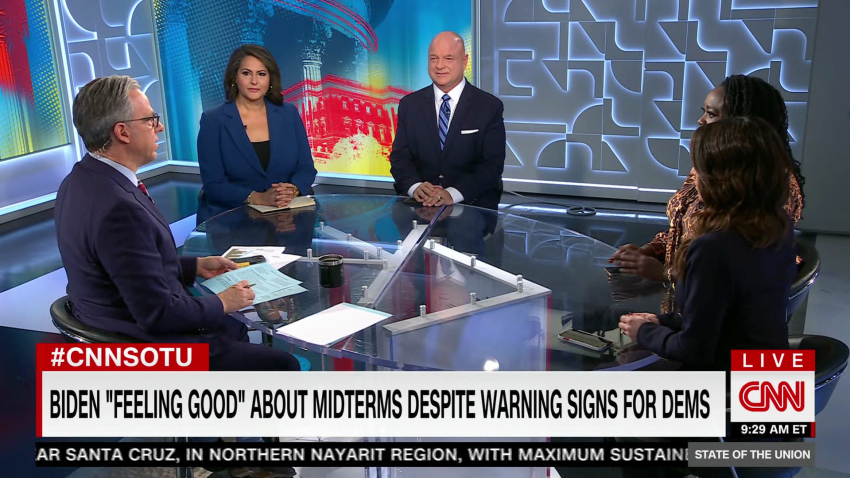Editor’s Note: Gaby Goldstein is the co-founder of Sister District, a nonprofit group whose mission is to build progressive power in state legislatures. Mallory Roman, a social psychologist and political researcher, is the director of research at Sister District. The views expressed in this commentary are their own. Read more opinion on CNN.
The president’s party typically loses ground in midterm elections. In two weeks, we’ll find out if this year will be an exception. Propelled by widespread dissatisfaction over Roe v. Wade’s reversal and concern about some Republicans’ efforts to erode democracy, Democrats appeared to have momentum a few weeks ago. The latest polling may suggest otherwise.

But even if Democrats buck historical trends and hold onto Congress, there is another cause for concern on the left: Democrats have a “roll-off” problem. We know that some people roll off their ballots, voting for candidates higher on the ballot but not for down-ballot offices such as the state legislature. But how common is ballot roll-off, and do both parties experience it equally?

To answer these questions, we compared the differences between the number of votes each major party’s presidential, gubernatorial or US Senate candidate (“up-ballot” candidates) and their state legislative party mates (“down-ballot” candidates) received in even-year elections between 2012 and 2020 in 10 battleground states.
The findings from the recent report of our organization, Sister District, were staggering: Democratic voters appear to roll off at much higher rates than Republican voters. The results echoed our past findings.
Down-ballot Democrats received fewer votes than up-ballot candidates in their own party 93.08% of the time. Down-ballot roll-off was less severe for down-ballot Republican state legislative candidates, who received fewer votes than up-ballot candidates 75.47% of the time. While both parties suffered from down-ballot roll-off, Democrats experienced it more often.
Interestingly, both parties sometimes experience what we are calling an “overage.” In this case, down-ballot candidates get more votes than their up-ballot party mates. Republicans again were more likely to experience this down-ballot advantage than Democrats (78% to 22% in the instances where we saw this happen).
We suspected that including uncontested state legislative races might be skewing our results. Perhaps some voters who appear to roll off the ballot didn’t have anyone to vote for down ballot. So, we looked at state legislative races in which both major parties fielded a candidate.
But the partisan trend only intensified. As expected, instances of roll-off decreased in contested races. But it decreased much more for Republicans down ballot than Democrats.
Contested down-ballot Democrats experienced ballot roll-off 79.41% of the time. Meanwhile, down-ballot Republicans in contested races saw a decrease of ballot roll-off to 37.25%.
The real-world consequence of our findings can be seen in the 2020 election results. Let’s take the Minnesota Senate. Joe Biden received more votes than Donald Trump, but Republicans still hold the state Senate majority. Ballot roll-off may have contributed to the results.
Minnesota state Senate Democrats in contested races received 110,297 fewer votes than Biden statewide, and state Senate Republicans in contested races received over 42,000 more votes than Trump. More than 95,300 voters who voted for president in these districts did not cast a vote for state Senate at all. And 2,620 of them did not cast a vote for the two Minnesota Senate seats that decided the chamber’s majority.
Democrats lost those two districts and failed to take the Senate majority by less than 2,000 votes. Even tiny margins of roll-off can make all the difference down ballot.
Whatever momentum Democrats may have will not magically flow down ballot heading into the midterms. Democrats should tackle state legislative ballot roll-off head-on.
Long term, it means investment in civic education, year-round community organizing and narrative-building about why increasing progressive state and local political power will result in better outcomes for everyone.
In the short term, Democrats must make the urgent, existential case that state legislatures are critical to the future of our civil rights and democracy.





